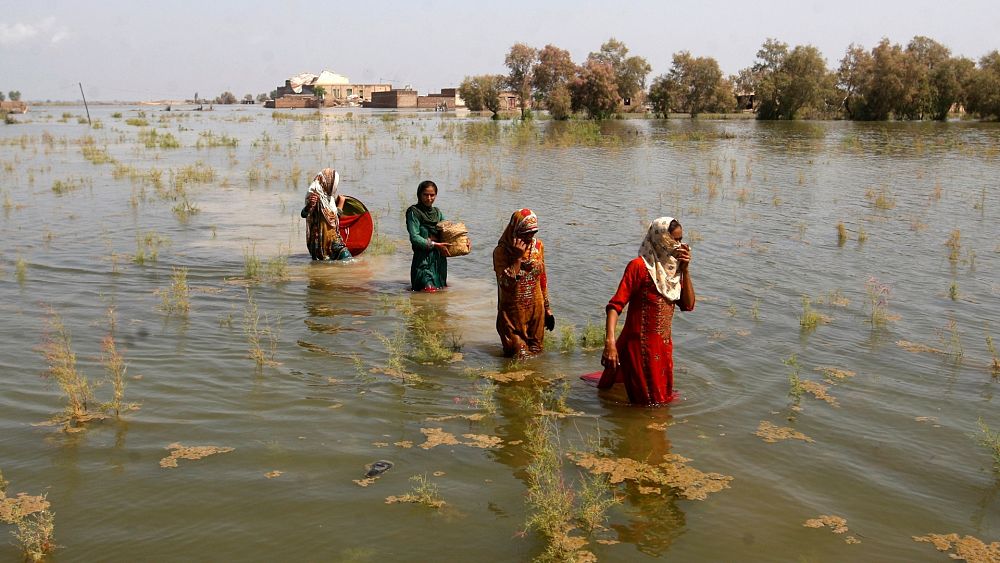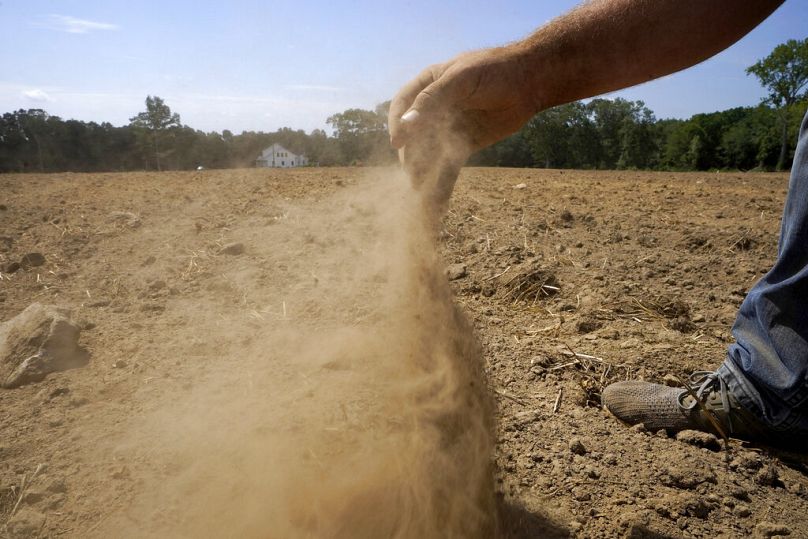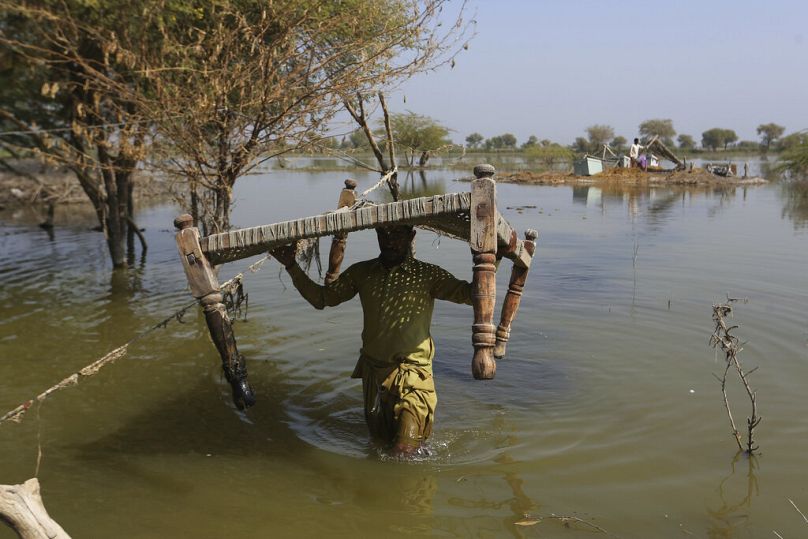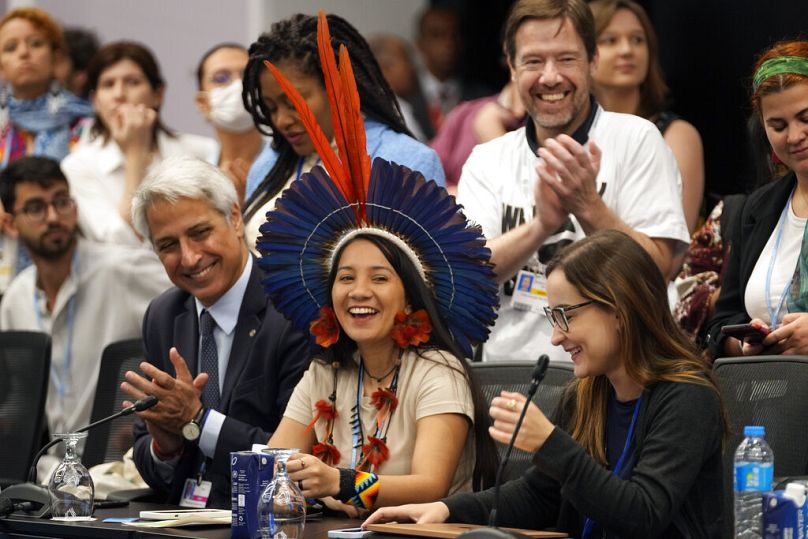
“If we act now, we can still secure a liveable, sustainable future for all,” Chair Hoesung Lee said at the launch of the latest Intergovernmental Panel on Climate Change (IPCC) report.
Written by the world’s leading climate experts, it lays out a clear path to drastically cut emissions and repair the damage that’s already been done. But it requires governments to get onboard and fund it — without delay.
This Synthesis Report brings together all the most up-to-date science on our warming planet.
It shows that, despite the unprecedented scale of the challenge, there are many solutions available to reduce greenhouse gas (GHG) emissions. Most importantly, they are available to us right now.
In 2018, the IPCC made the world aware of the unprecedented challenge of keeping global warming to 1.5°C. Five years later, it says that the challenge has become even bigger as GHG emissions have continued to rise.
The pace and scale of what has been done so far are insufficient to tackle climate change.
IPCC Chair Hoesung Lee adds that the Synthesis Report “underscores the urgency of taking more ambitious action”.
1. We have no time left to waste
Scientists say that more than a century of burning fossil fuels as well as unequal land and energy use has led to global warming of 1.1°C. It has led to more frequent and intense extreme weather events that have impacted people around the world.
As the planet warms these hazards rapidly escalate. We see heavier rainfall, more intense heatwaves and other extreme weather.
“Humanity is on thin ice — and that ice is melting fast,” UN Secretary-General, António Guterres told a conference at the launch of the report.
He said that it details how humans are responsible for virtually all global heating over the last 200 years.
“The climate time bomb is ticking. But today’s IPCC report is a how-to guide to defuse the climate time bomb,” he said.

2. Countries that have emitted the least are feeling the impacts of climate change the most
The report also puts loss and damage in sharp focus. It says climate change will continue to hit the most vulnerable people and ecosystems especially hard.
Loss and damage refers to the negative consequences of climate change on human societies and the natural environment. It was an important topic at COP27 where a breakthrough agreement was made establishing a fund to address these consequences — particularly for vulnerable nations.
Aditi Mukherji
One of the Synthesis Report’s authors
“Climate justice is crucial because those who have contributed the least to climate change are being disproportionately affected,” says Aditi Mukherji, one of the Synthesis Report’s 93 authors.
She adds that almost half of the world’s population lives in regions that are highly vulnerable to climate change. In the last decade, deaths from floods, droughts and storms were 15 times higher in these regions.
Accelerated action on adaptation will be required to close the gap between the measures we currently have and what is needed.

3. UN Secretary-General uses Oscar-winning film to make his point
The UN Secretary-General told the press conference at the launch of the report that the world needs climate action on all fronts. He referenced a recent Oscar-winning film calling for “everything everywhere all at once”.
Guterres has proposed that the G20 come together for something called the Climate Solidarity Pact. This agreement would see all big emitters make an extra effort to cut emissions. Wealthy countries are called upon to give funds to help emerging economies keep the 1.5℃ target alive.
He said that countries need to hit the “fast forward button” on their net zero deadlines.
“Specifically, leaders of developed countries must commit to reaching net zero as close as possible to 2040, the limit they should all aim to respect,” Guterres said.
“This can be done. Some have already set a target as early as 2035.”
Guterres’ Acceleration Agenda also includes actions like:
- Phasing out coal by 2040 at the latest
- Net zero electricity generation by 2035 for developed countries
- No more oil and gas licenses
“Every country must be part of the solution,” he said.
“Demanding others move first only ensures that humanity comes last.”
4. There is a clear way forward for climate resilience
The IPCC says that the solution lies in resilient development — finding ways to adapt to climate change or reduce greenhouse gas emissions that provide wider benefits.
“The greatest gains in wellbeing could come from prioritizing climate risk reduction for low-income and marginalised communities, including people living in informal settlements,” says Christopher Trisos, one of the report’s authors.
“Accelerated climate action will only come about if there is a many-fold increase in finance. Insufficient and misaligned finance is holding back progress.”
To be effective, the scientists say, these choices need to be rooted in our diverse values, world views and knowledge around the globe — including Indigenous knowledge. It would mean that these solutions are locally appropriate and socially acceptable.

5. The money is there but it needs to be spent on the right solutions
We have the money we need to invest in rapidly reducing greenhouse gas emissions — if current barriers are removed, the IPCC says.
These barriers include information sharing, making finance available to those who need it and general international cooperation.
Governments are essential in bringing down these barriers as they can encourage investors and hand out public funding.
“Transformational changes are more likely to succeed where there is trust, where everyone works together to prioritise risk reduction, and where benefits and burdens are shared equitably,” Lee said.
Hoesung Lee
IPCC Chair
Tried and tested policies which deliver deep emissions cuts and climate resilience need to be scaled up, according to the report. We need to share technology and know-how while making funding readily available.
“We live in a diverse world in which everyone has different responsibilities and different opportunities to bring about change,” Lee adds.
“Some can do a lot while others will need support to help them manage the change.”

